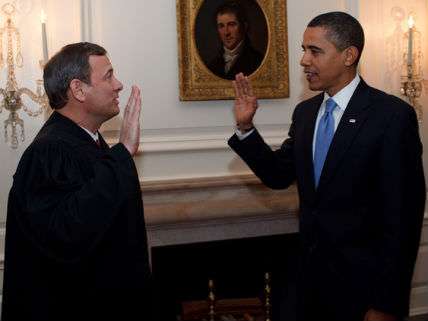Obamacare Goes Back on Trial: Supreme Court Agrees to Hear ACA Tax Subsidies Challenge

The U.S. Supreme Court agreed today to rule on the Obamacare case King v. Burwell, which asks whether the text of the Patient Protection and Affordable Care Act forbids the granting of tax credits to individuals who purchased insurance on health care exchanges operated by the federal government. The legal controversy arises from the fact that the text of the 2010 health care law limits such tax credits to individuals who purchased their insurance from an "exchange established by the State." Do those words cover the health care exchanges established by the federal government that are now operating in more than 30 states? We'll soon find out.
In its July 2014 ruling in favor of the Obama administration in this case, the U.S. Court of Appeals for the 4th Circuit held that while the text of the law appears to cut against the federal government, the government's interpretation was nonetheless entitled to deference. "We cannot discern whether Congress intended one way or another to make the tax credits available on HHS-facilitated Exchanges. The relevant statutory sections appear to conflict with one another, yielding different possible interpretations," the 4th Circuit argued. "Confronted with the Act's ambiguity, the IRS crafted a rule ensuring the credits' broad availability and furthering the goals of the law. In the face of this permissible construction, we must defer to the IRS Rule."
The big question now is whether the U.S. Supreme Court will also defer to the I.R.S. rule, or whether this time around the Court will deliver Obamacare a death blow.
Will John Roberts "Redeem Himself" on Obamacare?
Why the I.R.S. Should Receive No Deference from the Federal Courts


Show Comments (192)